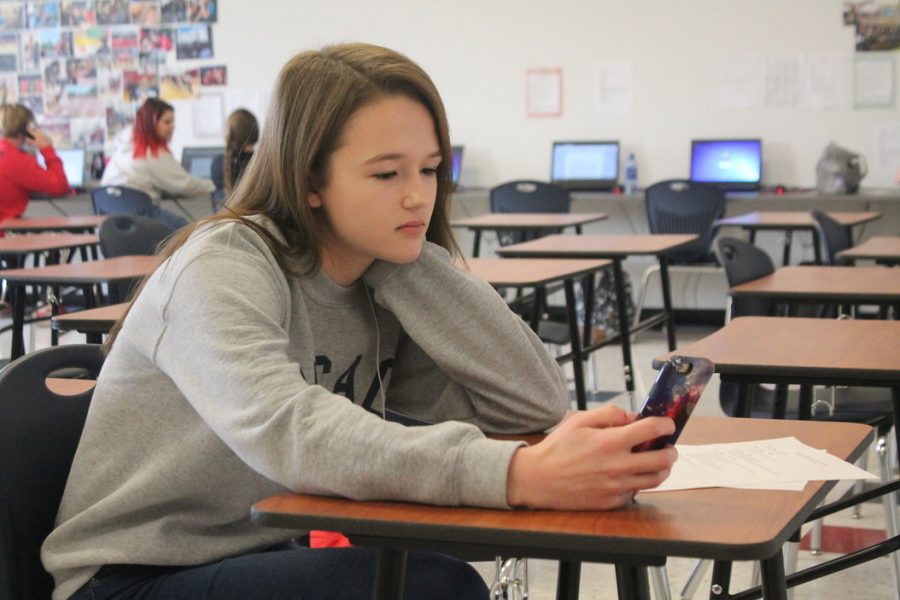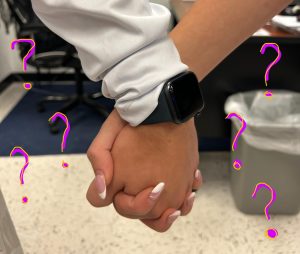Digital Distractions
Students are in charge of their education
December 12, 2016
Cell phones are a major component of many teenagers’ lives. With apps ranging from Facebook to Candy Crush, teens always have a way to occupy themselves. Students have chromebooks that provide them with multiple game and movie sites. But are these forms of technology keeping them from being able to learn in school?
The school environment is full of distractions and the cell phone and chromebook are prime elements. It’s our responsibility as students to limit how distracted we allow ourselves to get before it becomes an issue.
I believe that cell phones are a useful tool to use in the classroom. Cell phones can provide students with calculators and several research tools. Even music can be useful for certain students. I personally do my best work while listening to music, I find it very difficult to concentrate without it.
My teachers are very lenient by letting us keep our phones on our desks, listen to music and even respond to texts. However, they expect us the technology to be put away when they begin to teach.
Allowing students to use their cell phones requires trusting them to be responsible with them. While giving freedom is important, too much freedom can become an issue for some.
A teacher’s job at school is solely to teach their students. I witness teachers constantly reminding students to put away their phones, chromebooks, etc. but rarely take them away. In certain situations, teachers seem to become students’ babysitters by constantly telling them to stop playing on their cell phones and chromebooks.
I find these reminders an immense distraction to me, and they become quite annoying. At the end of the day, if the teacher has done their job, it’s up to the student to decide what happens to their grade.
Teachers obviously want all of their students to succeed, but the constant reminders and scolding is unfair to those of us who are invested and want to learn.
In the college atmosphere, the instructors will treat their students as adults. They put trust into them that they will put in effort if they want to. If not, that’s not the teacher’s problem. In the real work environment, if you are too distracted to finish your work, you will get fired.
Students need to learn now that distractions will have consequences. They will not always have someone there to remind them to focus. We need to learn how to have freedom while avoiding distractions.









